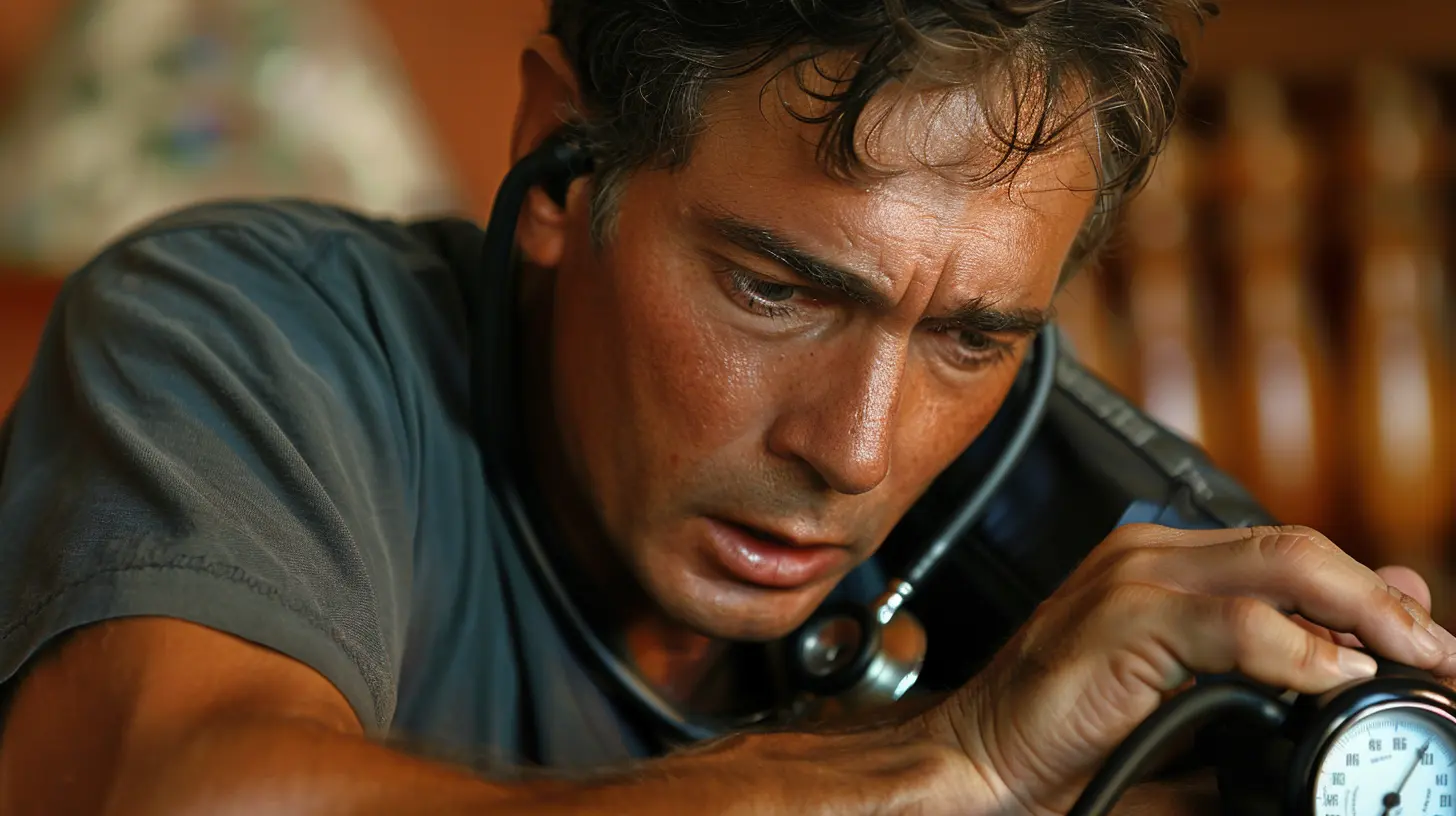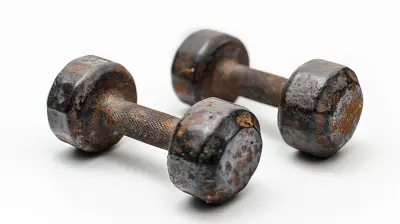How Stress Affects Your Blood Pressure
2 December 2024
Let’s face it, stress is an unavoidable part of life. Whether it’s work deadlines, family responsibilities, or unexpected curveballs (hello, flat tire!), we’ve all experienced that overwhelming feeling of stress. While it’s completely normal to feel stressed now and then, have you ever wondered what all that tension does to your body, especially your blood pressure? Spoiler alert: it’s not great.
In this article, we’ll dive into how stress and blood pressure are tightly interwoven, how stress impacts your heart health, and—because we’re not about doom and gloom—some tips to manage stress like a pro. Ready? Let’s jump in. 
What’s the Connection Between Stress and Blood Pressure?
Okay, first things first—what exactly is blood pressure? In simple terms, blood pressure is the force of your blood pushing against the walls of your arteries as it circulates. It’s like water flowing through a hose; too much pressure and you risk damaging the system.Now, here’s where stress comes in. When you’re stressed, your body shifts into "fight or flight" mode—a survival mechanism designed to protect you from immediate threats (like, say, a lion chasing you back in the caveman days).
Your adrenal glands kick things into high gear, releasing stress hormones like adrenaline and cortisol. These hormones cause your heart to beat faster and your blood vessels to constrict. The result? A temporary spike in blood pressure. Think of it as your body hitting the gas pedal on a car.
But here’s the catch: if stress becomes chronic, this temporary spike can turn into a long-term problem. Over time, frequent blood pressure surges put extra strain on your heart and arteries, increasing your risk of hypertension (high blood pressure). 
The Role of Stress Hormones
Let’s zoom in on cortisol for a second—the so-called “primary stress hormone.” While cortisol serves a purpose (like keeping you alert in emergencies), too much of it over an extended period can wreak havoc on your circulatory system.Imagine this: constant stress is like a dripping faucet. At first, it’s just a little annoying. But over time, that drip-drip-drip can flood your kitchen. Similarly, chronic stress keeps cortisol levels elevated, which can contribute to persistent high blood pressure.
Adrenaline, on the other hand, is more of the drama queen. It acts fast and sharp, but it doesn’t linger. However, if you’re constantly in situations that trigger adrenaline rushes—think daily traffic jams or never-ending Zoom meetings—your body starts to feel like it's in a constant state of emergency. Not fun, right? 
Physical Signs That Stress is Messing With Your Blood Pressure
Let’s be real: stress doesn’t exactly raise a red flag and scream, “Hey, I’m raising your blood pressure!” But your body does send out subtle signals to let you know something’s up. Here are a few common signs:1. Rapid Heartbeat: Ever feel like your heart is racing for no reason? It’s probably adrenaline doing its thing.
2. Headaches: Stress-induced hypertension can cause tension headaches or migraines.
3. Shortness of Breath: Stress affects your breathing patterns, making you feel winded even when you're not exerting yourself.
4. Sweating: Stress activates your sweat glands. Sweaty palms before a big presentation, anyone?
5. Chest Pain or Tightness: This one’s serious—stress can mimic symptoms of heart problems, so don’t ignore it. 
Stress vs. Other Blood Pressure Triggers
It’s worth mentioning that stress isn’t the only thing that can send your blood pressure soaring. Poor diet, lack of exercise, smoking, and genetics all play a role. But here’s the thing: stress often acts as the match that lights the fire.Think about it—when you’re stressed, you’re more likely to reach for unhealthy comfort foods, skip your workouts, or chain-smoke to “calm your nerves.” Stress can also disrupt your sleep, making you more irritable and less equipped to handle everyday challenges. It’s a vicious cycle.
Chronic Stress and Long-Term Health Risks
What happens if you ignore chronic stress? Well, let’s just say your blood pressure isn’t the only thing that could suffer. Over time, untreated stress can lead to:- Heart disease: High blood pressure is a major risk factor for heart attacks and strokes.
- Kidney damage: Your kidneys work overtime when your blood pressure is elevated, which can lead to long-term damage.
- Cognitive decline: Research shows a link between high blood pressure and memory problems later in life.
- Emotional toll: Chronic stress can spiral into anxiety and depression, creating a mental and emotional burden.
How to Manage Stress and Protect Your Blood Pressure
Alright, enough with the bad news. Let’s talk solutions because, spoiler alert, you do have the power to take control of your stress levels. Here are a few tried-and-true methods:1. Breathe It Out
Deep breathing exercises are like hitting the reset button on your body. Next time you’re feeling overwhelmed, try this: breathe in deeply for a count of four, hold for four, and exhale for six. Repeat a few times and feel the tension melt away.2. Sweat It Out
Exercise isn’t just good for your waistline; it’s a stress-busting powerhouse. Whether it’s yoga, running, or even a brisk walk, physical activity releases endorphins—your body’s natural stress-fighters.3. Prioritize Sleep
Lack of sleep and stress go hand in hand. Aim for 7-9 hours of quality shut-eye each night. Create a bedtime routine, ditch the screens an hour before bed, and consider a calming activity like reading or meditation.4. Talk It Out
Sometimes, you just need to vent. Whether it’s a friend, family member, or therapist, talking about what’s stressing you out can help you gain perspective and feel less alone.5. Take Breaks
Ever feel like you’re running on empty? That’s your body telling you to take a break! Step away from work, go for a walk, or listen to your favorite playlist for a quick mental reset.6. Practice Mindfulness
Mindfulness is all about living in the moment instead of worrying about what happened yesterday or stressing about tomorrow. Techniques like meditation, journaling, or even just paying attention to your surroundings can help you feel more grounded.7. Limit Caffeine and Alcohol
While that cup of coffee or glass of wine might seem comforting at the moment, too much caffeine or alcohol can actually spike your blood pressure and worsen stress. Moderation is key!When to Seek Professional Help
If you’ve tried all the strategies above and still find yourself overwhelmed, it might be time to talk to a healthcare professional. Sometimes, underlying health issues—like anxiety disorders or high blood pressure—require medical intervention. Don’t ignore the signs; your health is worth it.Final Thoughts
Stress is a part of life, but it doesn’t have to control you—or your blood pressure. By understanding the connection between stress and your cardiovascular health, you can take proactive steps to manage stress before it wreaks havoc on your body. Remember, you’re stronger than you think, and a little self-care goes a long way.So, the next time life feels like it’s pulling you in a million directions, take a deep breath, hit pause, and remind yourself: you’ve got this.
all images in this post were generated using AI tools
Category:
Blood PressureAuthor:

Laura Hudson
Discussion
rate this article
14 comments
Juniper Bishop
Great article! Remember, while stress can be a sneaky culprit, there are simple ways to manage it. Take a deep breath, find your happy place, and keep your blood pressure in check! You've got this!
February 10, 2025 at 3:58 PM

Laura Hudson
Thank you! I appreciate your positive feedback and great tips for managing stress.
Zander Taylor
Understanding the link between stress and blood pressure is crucial for managing overall health. Implementing stress-reduction techniques, like mindfulness and exercise, can significantly enhance cardiovascular well-being and longevity.
January 31, 2025 at 4:07 PM

Laura Hudson
Thank you for your insight! Stress management is indeed vital for maintaining healthy blood pressure and overall cardiovascular health.
Rook Franklin
Thank you for this insightful article on the connection between stress and blood pressure. It's crucial to understand how our mental well-being can impact physical health. I appreciate the practical tips you provided for managing stress—these strategies are essential for maintaining a healthy lifestyle. Keep up the great work!
January 28, 2025 at 3:57 PM

Laura Hudson
Thank you for your thoughtful response! I'm glad you found the article and tips helpful. Your insights into the link between mental well-being and physical health are spot on!
Gideon Wolf
Understanding the link between stress and blood pressure is crucial for maintaining overall health. Chronic stress can trigger hormonal changes that elevate blood pressure, highlighting the importance of stress management techniques like mindfulness and exercise for cardiovascular well-being.
January 24, 2025 at 4:04 AM

Laura Hudson
Absolutely! Managing stress through techniques like mindfulness and exercise is vital for controlling blood pressure and promoting heart health. Thank you for emphasizing this important connection!
Alexia Rivera
Great article! It's amazing how our daily stresses can sneak up on us and impact our health. I’ve definitely felt the difference during hectic days. We all need to find time to unwind!
January 21, 2025 at 5:59 PM

Laura Hudson
Thank you for your feedback! It's so true—finding time to unwind is crucial for our health, especially in today's fast-paced world.
Kyle Webster
Chronic stress can lead to sustained high blood pressure, worsening overall cardiovascular health.
January 17, 2025 at 5:10 AM

Laura Hudson
Absolutely! Chronic stress significantly impacts cardiovascular health by contributing to sustained high blood pressure. Managing stress is crucial for maintaining heart health.
Zella Rhodes
Stress sneaks up on us all! Managing it can truly help keep our blood pressure in check.
January 9, 2025 at 6:06 PM

Laura Hudson
Absolutely! Recognizing and managing stress is crucial for maintaining healthy blood pressure levels. Thank you for your insight!
Genevieve Wilkins
Stress acts as a silent orchestrator of our body's responses, tightening the mind and constricting blood vessels. Understanding this connection invites us to explore mindfulness and resilience, empowering us to regain control over our health in an increasingly chaotic world.
January 2, 2025 at 5:06 PM

Laura Hudson
Thank you for your insightful comment! Yes, understanding stress's impact on our bodies is crucial for managing our health effectively. Mindfulness and resilience are key tools in combating these effects.
Sienna Barker
Understanding the connection between stress and blood pressure empowers us to take charge of our health. By managing stress through mindfulness and relaxation techniques, we can improve our well-being and lead happier, healthier lives. Keep thriving!
December 28, 2024 at 3:43 AM

Laura Hudson
Thank you! I'm glad you found the connection helpful. Prioritizing stress management is indeed key to better health and well-being. Keep thriving!
Ariadne Torres
Great insights! Understanding stress's impact on blood pressure is essential.
December 25, 2024 at 4:31 PM

Laura Hudson
Thank you! I'm glad you found the insights helpful. Understanding this connection is crucial for managing overall health.
Thistle Murphy
Stress is a silent killer, relentlessly driving up blood pressure. Don't ignore the symptoms—take control of your health today. Prioritize self-care and break the cycle before it breaks you.
December 18, 2024 at 4:24 PM

Laura Hudson
Thank you for emphasizing the importance of recognizing stress as a vital health factor. Taking proactive steps for self-care is crucial in managing blood pressure and overall well-being.
Xavi McElveen
Understanding the link between stress and blood pressure is crucial; managing stress can lead to better heart health and overall well-being.
December 15, 2024 at 3:37 AM

Laura Hudson
Thank you for your insightful comment! You're absolutely right; managing stress plays a key role in maintaining healthy blood pressure and improving overall heart health.
Mercy Kirk
Stress significantly impacts blood pressure, leading to serious health risks. Recognizing its effects is crucial for effective management. Prioritizing stress-reduction strategies, such as mindfulness, exercise, and adequate sleep, can help maintain healthy blood pressure levels and improve overall well-being. Take control today!
December 5, 2024 at 5:27 PM

Laura Hudson
Thank you for your insightful comment! Managing stress is indeed vital for maintaining healthy blood pressure and overall well-being. Prioritizing effective strategies can make a significant difference.
John Mahoney
Stress? Blood pressure's BFF!
December 2, 2024 at 5:42 AM

Laura Hudson
Absolutely! Stress and high blood pressure often go hand in hand, as stress can lead to temporary spikes and long-term issues. Managing stress is crucial for maintaining healthy blood pressure levels.
MORE POSTS

How to Design a Balanced Outdoor Routine for All Fitness Levels

The Surprising Benefits of Seaweed as a Superfood

Oats Reimagined: Unique and Healthy Ways to Enjoy Your Bowl

How to Balance Your Hormones with the Right Breakfast Foods

How Shift Work Impacts Your Sleep and Health – and What You Can Do About It

The Hidden Role of Inflammation in Blood Sugar Imbalance

Integrating Strength Training into a Busy Schedule

Debunking Myths: Can You Get All Nutrients from a Vegan Diet?

How Strength Training Transforms Your Metabolism